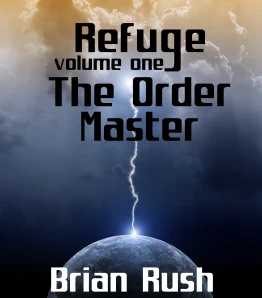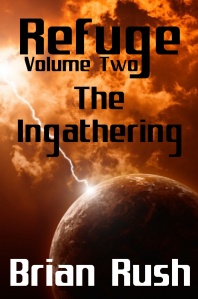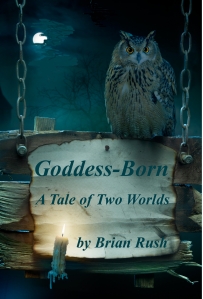 In the discussion on my last post, I used a term, “neo-Puritanism,” that provoked some confusion. To try to address that, I’m going to write something on the original Puritans, who they were, what they believed, and what happened as a result, and how those I’m calling “neo-Puritan” merit the term even though they’re often not Christian, nor anti-sexual killjoys.
In the discussion on my last post, I used a term, “neo-Puritanism,” that provoked some confusion. To try to address that, I’m going to write something on the original Puritans, who they were, what they believed, and what happened as a result, and how those I’m calling “neo-Puritan” merit the term even though they’re often not Christian, nor anti-sexual killjoys.
That’s how we tend to think of the Puritans today, and there’s some truth to it, but it doesn’t do justice to the movement, which was far more complex and interesting than that. It’s also common to think of the Puritans as conservative, and that they most certainly were not. They were quite progressive, in fact, even radical in many cases.
Puritanism strictly speaking was a movement within English Protestant Christianity in the 17th century. Properly so called, only these English people should be considered Puritans, although there were comparable movements happening on the continent at the same time. Puritanism was a continuation of the Reformation impulse that had disrupted European Christianity a century earlier. It was deeply Christian, but not in an orthodox way (the Puritans challenged the orthodoxy of the time). It was highly moralistic and sought to perfect human behavior, or come as close to that as possible. And it was strongly egalitarian, rejecting the privileges and pretenses of the titled nobility and asserting that all were equal in the sight of God.
Puritanism had an immense impact on the history of both England and America. In England, the movement led to political opposition to the rule of King Charles I and in support of Parliament, to the English Civil War, and to the temporary overthrow of the monarchy and Charles’ deposition and execution. In America, a small subset of the Puritans who had removed themselves from the ongoing political struggles in the home country built a religious experiment in what is now New England, founding settlements that would seek to create a perfect Christian society, and would powerfully influence the course of American history up to and through the drive for independence and the movement to abolish slavery.
It’s important to understand that the Puritans were a far remove from today’s right-wing fundamentalist and evangelical Christians who, on the surface, seem to share some of their specific religious beliefs. In today’s terms, we would say that their impulses came from the left, not the right. They were quite scholarly people as well, believing strongly in education, and their views of Christian morality were the antithesis of narrow-minded. They were indeed anti-sexual by modern standards, but that was only a part of their moral convictions. They condemned greed, oppression, wanton violence, and the inequalities and injustices built into English society much more fiercely than they condemned sexual misbehavior.
I find it easy to feel sympathetic towards the Puritans, even though I’m not Christian and disagree with many of the particulars of Puritan belief. I understand the impulse to perfect society, to correct its inequities and create institutions that reflect sound morality and a spirit of love and benevolence. I understand the value of equality. If the Puritans could take a look at today’s society, they would surely condemn the greed and arrogance of our modern capitalists at least as strongly as they condemned the British noble class. (They’d also be horrified at the open sexuality of today’s Europe and America, but never mind that.) Many of the spiritual sentiments expressed in posts on this blog from time to time would find a nodding acceptance among the Puritans, especially the rejection of religious authority and the assertion that each person must find the truth for himself or herself, in personal experience of the All. They would put that in different language than I do, but it would come down to the same thing.
On a spiritual and religious level, Puritanism should be seen, in my opinion, as a net positive. But as a political movement, it was an abject failure, until some of its impulses were taken up by other, more secular approaches to politics. In England, the overthrow of Charles I led not to a republic but to a dictatorship under Oliver Cromwell, who ruled like a king but called himself the Lord Protector. After Cromwell’s death, the monarchy was restored under Charles II, and except for the death and destruction the movement might as well never have happened at all. It did, however, establish certain ideas about equality and universal representation in English politics which would resurface later with more lasting effect, and Charles I was also the last English monarch to make an attempt at absolutist rule. His fate cautioned all of his successors.
In America, the New England colonies morphed over a few generations from experiments in religious perfection into ordinary societies with commerce, industry, and all of the normal human failings of the time. New England merchants were important factors in the slave trade, something Puritans would, and their spiritual descendants did, condemn ferociously.
Eventually, movements in both countries took up some of the values of the Puritans and made them workable. Today’s English monarchy has been stripped of almost all its power, remaining a figurehead and a tourist attraction, while the British nobility has seen its privileges disappear over the years. In America, the most famous phrase in the Declaration of Independence is surely “all men are created equal, and endowed by their Creator with certain inalienable rights,” a decidedly Puritan idea even though Jefferson took most of his thinking from the Enlightenment.
But the only way that these movements could succeed was by removing the goals from the impulse to religious perfection of human behavior that defined the Puritan movement. When the goal was to eradicate sin, the movement could not succeed. When it became something more definable and secular, it did.
And that brings me round to those I’m referring to as “neo-Puritans.” Neo-Puritans share with the original Puritans not their Christianity (necessarily) and certainly not the anti-sexuality that we sometimes mistakenly call “Puritanism,” but their impulse to perfect human behavior and to suppress and eliminate sin — as neo-Puritans understand “sin,” which may sometimes differ from the way the original Puritans thought of it. Neo-Puritans today may be environmentalists, feminists, or economic egalitarians. They see the behavior of human beings, particularly the wealthy and powerful, towards nature or towards one another, as worthy of condemnation. As with the original Puritans, we must acknowledge that they have a point. But the political failure of the Puritan movement should caution us against trying to translate that religious, spiritual, and moral impulse into politics, except with strong secular filters.
The perfection of human character is a spiritual goal and should be approached with spiritual means: individual, not collective; self-directed, not imposed from without; and something each individual and each generation must gain anew. Politics must assume, if it is to be successful, an imperfect human character, and create policies that work in spite of this. We may achieve a sustainable economy, or equal rights between genders, or a living income for all. But we will not achieve through politics (and nature won’t do it for us, either) an end to the desire to consume, or to misogyny, or to greed.
Copyright: ra2studio / 123RF Stock Photo







